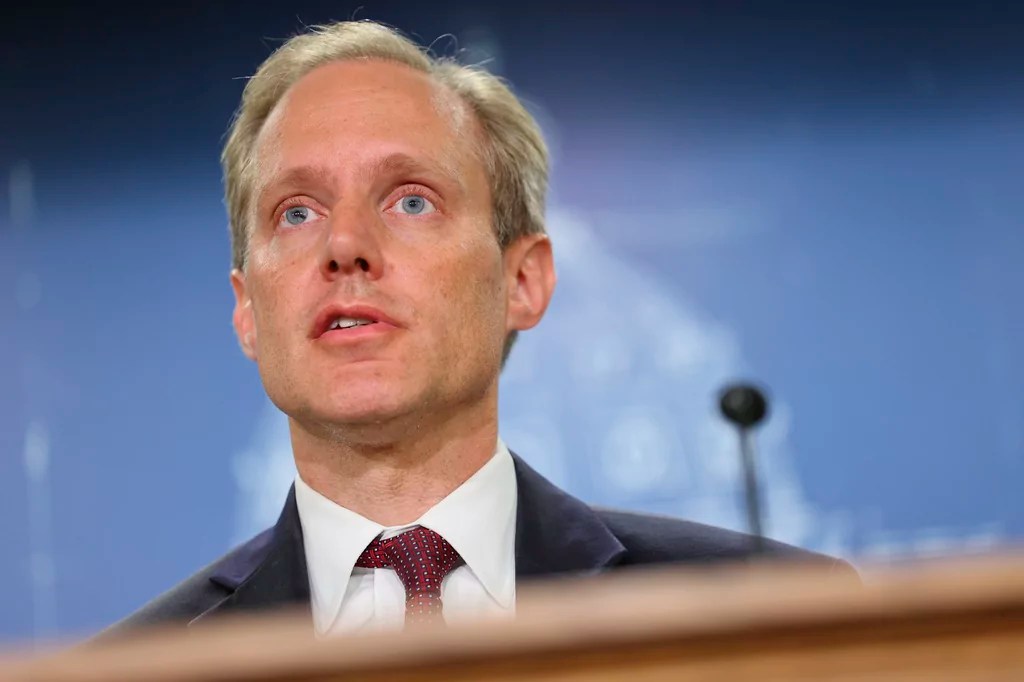The Bezos-Biden Inflation Debate
Taking a page from his rival and fellow space tycoon Elon Musk, Jeff Bezos has been tweeting surprisingly acerbic criticisms of the progressive powers-that-be, precipitating a debate with the Biden administration over economic policy.
On Friday, Biden’s office issued a tweet proposing higher and “fairer” taxes on “the wealthiest corporations” as a way to “bring down inflation.”
Bezos characterized the tweet as a “non sequitur” and accused the administration of “mushing” together two unrelated issues.
But to be fair to Biden, the tweet isn’t as much of an incoherent word salad as it might seem. According to Biden’s official anti-inflation plan, the missing link in the seeming non sequitur is deficit reduction:
“President Biden has a plan to tackle inflation – by lowering costs that families face and lowering the federal deficit by asking the large corporations and the wealthiest Americans to pay their fair share.”
How is this supposed to work? According to the conventional wisdom of mainstream economics, as expressed by Investopedia:
“One of the primary dangers of a budget deficit is inflation, which is the continuous increase of price levels. In the United States, a budget deficit can cause the Federal Reserve to release more money into the economy, which feeds inflation.”
So Biden’s plan is probably to raise taxes on the wealthy in order to reduce the budget deficit, and thus reduce the need for the Fed to cover the deficit with newly created money. One flaw in that plan is that, as Arthur Laffer illustrated with his famous “curve,” higher tax rates do not necessarily mean higher tax revenue, as economist Daniel Mitchell explains.
On Saturday, Biden’s Twitter account referenced the deficit/inflation connection in another tweet contending that “reducing the deficit is one of the main ways we can ease inflationary pressures.”
But Bezos isn’t buying that either. In a response to that tweet, Bezos implied it is Biden’s own lavish stimulus spending—not insufficiently high corporate taxes—that is to blame for inflationary budget deficits. Bezos characterized Biden’s efforts to shift the blame away from his own policies as “misdirection” and “disinformation.”
The newly created Disinformation Board should review this tweet, or maybe they need to form a new Non Sequitur Board instead. Raising corp taxes is fine to discuss. Taming inflation is critical to discuss. Mushing them together is just misdirection. https://t.co/ye4XiNNc2v
— Jeff Bezos (@JeffBezos) May 14, 2022
In fact, the administration tried hard to inject even more stimulus into an already over-heated, inflationary economy and only Manchin saved them from themselves. Inflation is a regressive tax that most hurts the least affluent. Misdirection doesn’t help the country. https://t.co/a8cygcunEG
— Jeff Bezos (@JeffBezos) May 15, 2022
Look, a squirrel! This is the White House’s statement about my recent tweets. They understandably want to muddy the topic. They know inflation hurts the neediest the most. But unions aren’t causing inflation and neither are wealthy people. Remember the Administration tried… pic.twitter.com/GaMb3Kiu72
— Jeff Bezos (@JeffBezos) May 16, 2022
On Monday, Former Treasury Secretary Larry Summers weighed in, tweeting that Bezos is “mostly wrong” and contending that “we should raise taxes to reduce demand to contain inflation and that the increases should be as progressive as possible.”
Summers ascribes this stance to the president as well. But, again, Biden’s official anti-inflation plan advocates tax hikes as a means of affecting deficit reduction. And it nowhere even mentions demand reduction. On this matter, Summers seems more Keynesian than even Biden.
In truth, Bezos is mostly right in this exchange. Inflation is largely due to the US government having a spending problem, not a revenue problem. In 2021, the US government spent $6.82 trillion, which was 30.5% of GDP. This is a mammoth uptick from 2019 spending, which was $4.4 trillion and 21% of GDP.
What Bezos omits to mention is the role of the Fed in both enabling the government’s spending problem and turning that spending problem into an inflation problem by covering the resulting deficits with massive money-creation.
The Biden tweet that started this debate may not be as incoherent as it seemed. But the policy it promotes is as wrong-headed as ever.
" Conservative News Daily does not always share or support the views and opinions expressed here; they are just those of the writer."





Now loading...